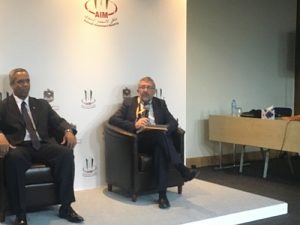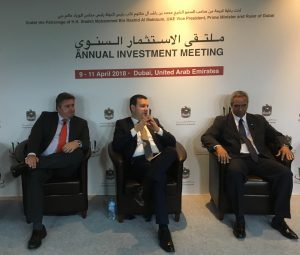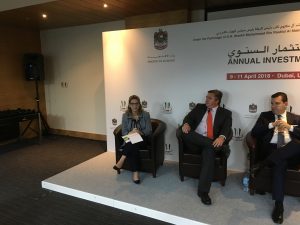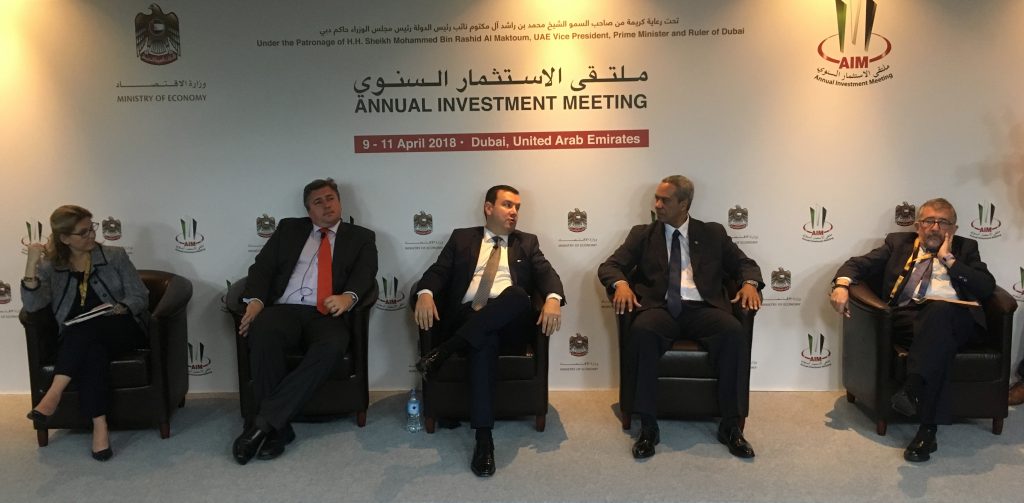Dubai – The United Nations Economic Commission for Latin America and the Caribbean (ECLAC) issued this Wednesday (11), the last day of the Annual Investment Meeting (AIM) in Dubai, a preview of its report on foreign direct investment (FDI) in the region, which should be out in June.

“FDI flows into the region decreased over the last two years, and the type of investment and the industries being invested in have changed. The bulk of funds went into the process industry, services and renewable energies,” ECLAC deputy executive secretary Mario Cimoli said in a panel on the region.
ECLAC numbers show that natural resource exploration accounted for 90% of the decline in investment flows into Latin America and the Caribbean, while investment in industry and services remained stable, and renewable energies are seeing more funds.
“There’s a new approach to investment in the region,” said Cimoli. “That doesn’t mean natural resources or real estate are not good industries to invest in, but there’s a transition going on,” he added. The ECLAC believes this shift could help industrial diversification and sustainability in Latin America.

“We have seen a growing flow of investment into industry over the past few years, especially the auto industry,” said Paraná state development agency (Investe Paraná) chairman Adalberto Netto, who also sat in the panel. “In the first three months of this year alone, Paraná saw BRL 7 billion (USD 2 billion) in investment and there’s room for growth, because industry represents only 22% of the state’s economy,” he said.
Last year, USD 70.3 billion worth of FDI entered Brazil, down 10% from 2016. “Brazil remains the primary FDI target in Latin America,” Cimoli remarked.
The panel also featured the director of the Costa Rica Investment Promotion Agency (CINDE). She discussed Costa Rica’s shift from a predominantly agricultural economy to being a cluster of high-technology industries including computing, medical equipment and electronic components.

“Our view is that Costa Rica is not a big market (it’s a small country), but the region is, so we can reach a big population. This is why we decided to open up our economy, to work on trade agreements and to create free zones,” she said. According to her, the Central American nation sees some USD 3 billion in FDI each year, and 50% of it goes into free zones, where manufacturing is export-driven.
The panel also featured the Cuban deputy minister of Foreign Trade and INvestment, Antonio Corona, and the chairman of Mexico’ Veracruz State Energy Agency, Pablo Puig.
Mario Cimoli said the ECLAC has decided to support Latin American countries in attracting investment, because the region is usually “too self-centered, with no communication with the outside world. This is why the ECLAC is working to support investment promotion in Latin America,” he said.
Translated by Gabriel Pomerancblum




